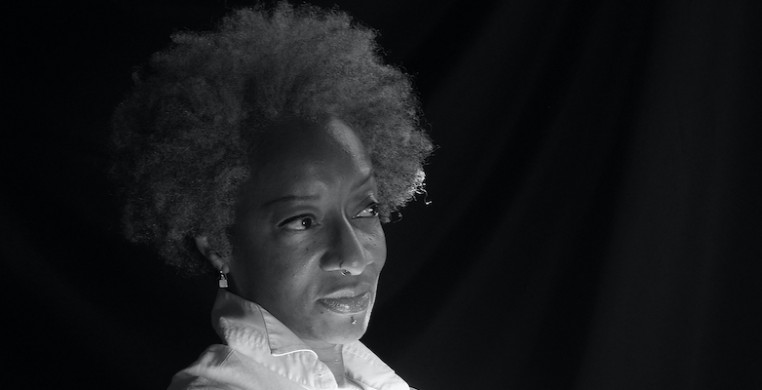The Doris Duke Charitable Foundation announced the 2021 cohort of dance artists Thursday, including distinguished award-winning choreographer and performance artist Cynthia Oliver. Oliver is the only Illinois-based artist to receive the grant, an unrestricted $275,000 award supporting artistic exploration.
Oliver and I connected via phone on Friday evening at the tail end of Mercury's Retrograde. In stream of conscious fashion, I name drop one of her former beloved students, reminded her of a time we met briefly and mentioned her piece "Virago-Man Dem" which explores the multiplicity of Black masculinity which I had the pleasure of seeing a few years ago.
The game changing award comes after a rough stretch of significant shifts for Oliver, whose mother and father passed away in 2018. Compounded by the magnitude of the pandemic, raising a teenager during COVID, all the while still beaming from her most recent United States Artists Grant. Rightfully, Oliver’s current mood is contemplative. She is giving herself permission to not produce work for the stage and simply consider what lies ahead and personally and professionally.
In a roundabout way, we had an organic conversation about all the things up for consideration during this transformative time. I leaned in with admiration and glee, hustling to pick up the dropping gems before me.
Her voice, calm and assertive, is clear on who she is. “I hail from a continuum of artists who have always insisted on doing the work,” she said. The center page on her website has a quote that keeps her grounded in this work: “I want to get dirty, acknowledge demons, hail the angels, tell secrets, question and celebrate conflicted, complicated, glorious lives fully lived.”
The pandemic has only fine-tuned that focus for Oliver, amplifying the importance of advocacy for artists and systemic change within the industry. “I’m concerned with the cycle and system of presenting,” she said. “There needs to be changes in the field so that the entire system is more diverse, equitable and supportive of the creative process as opposed to the product. We oftentimes have to make new things because funders don’t usually support revivals or operational cost. We work so hard to get work done, for such a short run. There are a lot of systemic changes that need to be re-considered before we re-open because ‘business as usual’ was not healthy and sustainable for the artist.”
Currently based in Urbana-Champaign at the University of Illinois, but always representing the Bronx and Virgin Islands, Oliver is also hopeful that this generous gift will allow her the space and time to further reflect on the role academia plays and how she sees herself within the Academy during this time. Wearing multiple hats and gaining invaluable perspectives as dance professor, director of U of I’s MFA dance program and associate vice chancelor of research in the humanities, Oliver has spent decades pouring into the next generation of movers, whose functions in her life are manifold and shift from students to co-conspirators and fellow thought partners. Admittedly, she also still geeks out over her brilliantly crafted syllabi, the most recent being for a graduate seminar class called “Choreography and the Racial Politics of Space and Time.”
Oliver is also widely known for her interdisciplinary choreographic practice and approach, which is rooted in the multifaceted myriad of Afro-Caribbean and American cultures. Her repertoire boasts an array of nuanced concepts from madness, grief and death to masculinity and womanhood, further complicated by her coy incorporation of text and experimental sound.
Oliver has been “doing the work” as her mentor Laurie Carlos would say, for a long time, and it is both satisfying and hopeful to see her receiving her proper due. The Doris Duke Performing Arts Award will bring more eyes on Oliver’s timeless and trailblazing performance collection and scholarly research, not to mention Cynthia the woman. Boasting a sweet archive of scholarly essays, images and articles, her journey and commitment to celebrating and fleshing out the nuances of Afro-Caribbean culture, womanhood and the markers of our everyday lives puts her in the category of critical scholars and performing artists we will study for generations to come.

